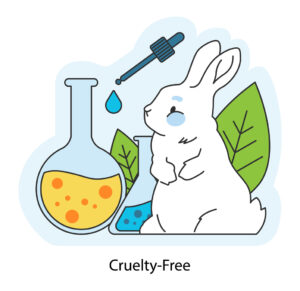The Ethics of Cruelty-Free Cosmetics: Ending Animal Testing in the Beauty Industry
In an age where ethical consumerism is on the rise, the spotlight is increasingly focused on the practices behind our favorite beauty products. One of the most pressing ethical issues is animal testing in the cosmetics industry. This blog delves into why choosing cosmetics not tested on animals is a moral imperative and how it impacts both consumers and the industry at large.
The Moral Dilemma of Animal Testing
Animal testing for cosmetics involves subjecting animals like rabbits, guinea pigs, and mice to painful procedures to test product safety. These practices raise significant ethical concerns:
- Suffering and Cruelty: Animals often endure distress, pain, and death during testing.
- Lack of Consent: Animals cannot consent to testing, making the practice inherently unethical.
- Questionable Necessity: With advanced technology, many argue that animal testing is outdated and unnecessary.
Alternatives to Animal Testing
Modern science offers several humane and effective alternatives:
- In Vitro Testing: Using human cell cultures to assess product safety.
- Computer Modeling: Advanced software can predict how substances will react with human biology.
- Human Volunteer Studies: Controlled studies with willing participants provide ethical testing environments.
These methods not only spare animals but can also yield more accurate and relevant results for humans.

The Rise of Cruelty-Free Brands
An increasing number of beauty brands are adopting cruelty-free practices:
- Ethical Commitment: Companies pledge not to test on animals at any stage of product development.
- Certifications: Look for logos like the Leaping Bunny or PETA’s cruelty-free bunny to identify ethical products.
- Consumer Demand: As more people prioritize ethics, the market for cruelty-free cosmetics is expanding.
Legal Movements and Regulations
Globally, there is a shift towards banning animal testing:
- European Union: Implemented a complete ban on animal-tested cosmetics in 2013.
- India and Israel: Have also prohibited animal testing for cosmetics.
- United States: Several states have passed laws banning the sale of animal-tested cosmetics, with federal legislation under consideration.
These legal actions reflect a growing consensus on the importance of ethical practices in the industry.
The Role of Consumers in Driving Change
Your choices as a consumer have a powerful impact:
- Vote with Your Wallet: Supporting cruelty-free brands encourages more companies to adopt ethical practices.
- Spread Awareness: Educate others about the importance of cruelty-free cosmetics.
- Demand Transparency: Urge brands to be open about their testing methods and ingredient sourcing.
Ethical Beauty Is Sustainable Beauty
Choosing cruelty-free products often aligns with other ethical and sustainable practices:
- Natural Ingredients: Many cruelty-free brands use organic or natural ingredients, benefiting your skin and the environment.
- Environmental Impact: Ethical brands are more likely to use sustainable packaging and production methods.
- Social Responsibility: Companies committed to animal welfare often support other social causes.
Conclusion
Embracing cruelty-free cosmetics is more than a personal choice; it’s a stand against animal cruelty and a push for a more ethical beauty industry. By opting for products not tested on animals, you contribute to a movement that values compassion over convenience. Together, we can drive the change towards a future where beauty and ethics go hand in hand.

See more: